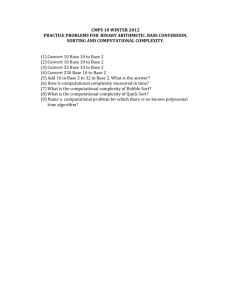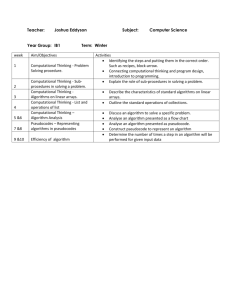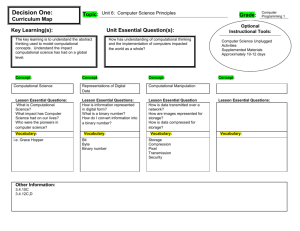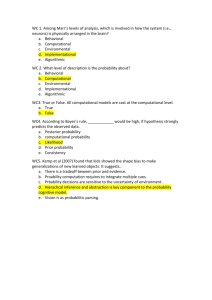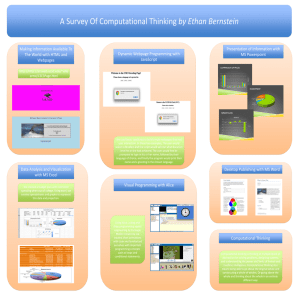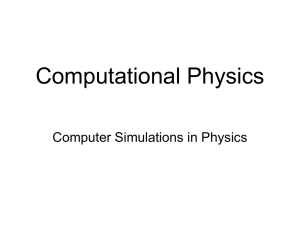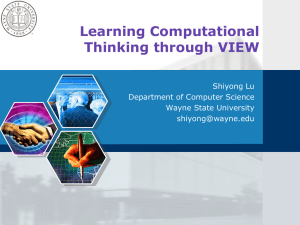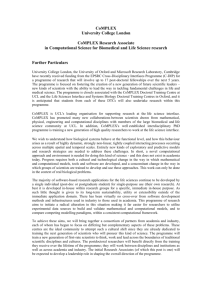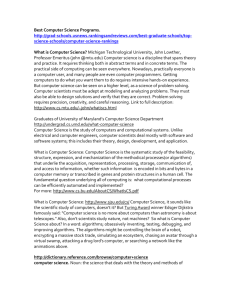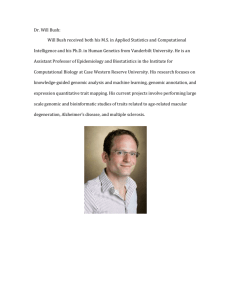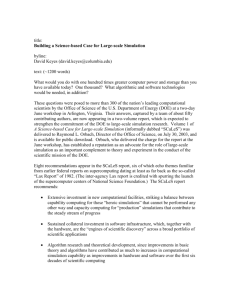kdi99_summary - The Stanford University InfoLab
advertisement
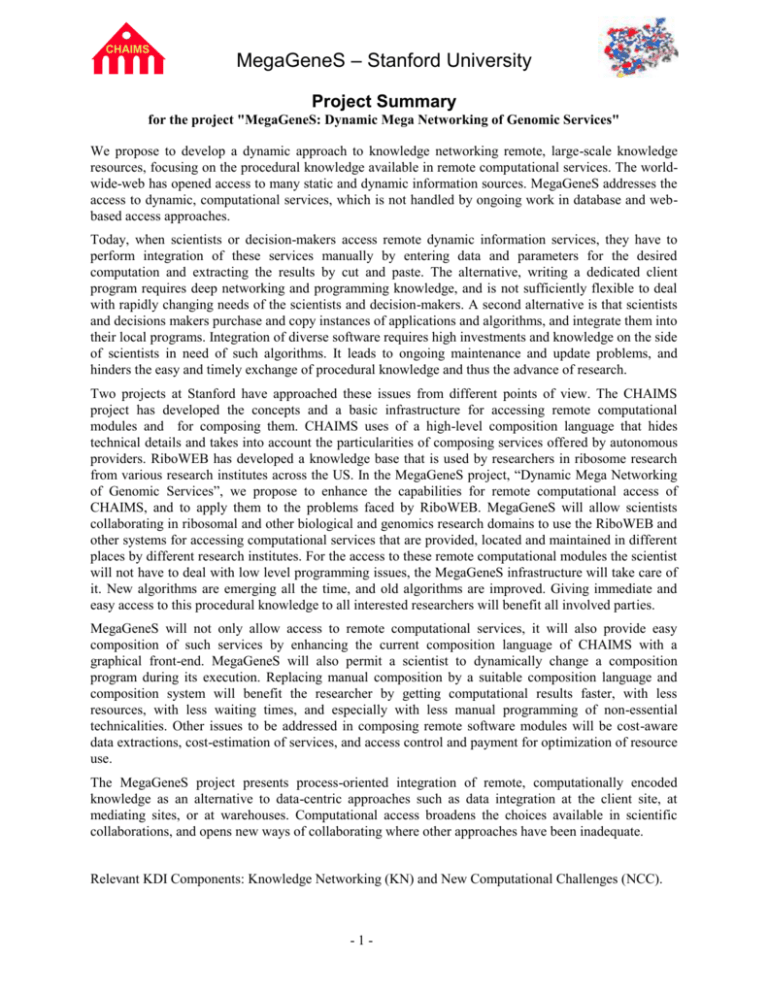
CHAIMS MegaGeneS – Stanford University Project Summary for the project "MegaGeneS: Dynamic Mega Networking of Genomic Services" We propose to develop a dynamic approach to knowledge networking remote, large-scale knowledge resources, focusing on the procedural knowledge available in remote computational services. The worldwide-web has opened access to many static and dynamic information sources. MegaGeneS addresses the access to dynamic, computational services, which is not handled by ongoing work in database and webbased access approaches. Today, when scientists or decision-makers access remote dynamic information services, they have to perform integration of these services manually by entering data and parameters for the desired computation and extracting the results by cut and paste. The alternative, writing a dedicated client program requires deep networking and programming knowledge, and is not sufficiently flexible to deal with rapidly changing needs of the scientists and decision-makers. A second alternative is that scientists and decisions makers purchase and copy instances of applications and algorithms, and integrate them into their local programs. Integration of diverse software requires high investments and knowledge on the side of scientists in need of such algorithms. It leads to ongoing maintenance and update problems, and hinders the easy and timely exchange of procedural knowledge and thus the advance of research. Two projects at Stanford have approached these issues from different points of view. The CHAIMS project has developed the concepts and a basic infrastructure for accessing remote computational modules and for composing them. CHAIMS uses of a high-level composition language that hides technical details and takes into account the particularities of composing services offered by autonomous providers. RiboWEB has developed a knowledge base that is used by researchers in ribosome research from various research institutes across the US. In the MegaGeneS project, “Dynamic Mega Networking of Genomic Services”, we propose to enhance the capabilities for remote computational access of CHAIMS, and to apply them to the problems faced by RiboWEB. MegaGeneS will allow scientists collaborating in ribosomal and other biological and genomics research domains to use the RiboWEB and other systems for accessing computational services that are provided, located and maintained in different places by different research institutes. For the access to these remote computational modules the scientist will not have to deal with low level programming issues, the MegaGeneS infrastructure will take care of it. New algorithms are emerging all the time, and old algorithms are improved. Giving immediate and easy access to this procedural knowledge to all interested researchers will benefit all involved parties. MegaGeneS will not only allow access to remote computational services, it will also provide easy composition of such services by enhancing the current composition language of CHAIMS with a graphical front-end. MegaGeneS will also permit a scientist to dynamically change a composition program during its execution. Replacing manual composition by a suitable composition language and composition system will benefit the researcher by getting computational results faster, with less resources, with less waiting times, and especially with less manual programming of non-essential technicalities. Other issues to be addressed in composing remote software modules will be cost-aware data extractions, cost-estimation of services, and access control and payment for optimization of resource use. The MegaGeneS project presents process-oriented integration of remote, computationally encoded knowledge as an alternative to data-centric approaches such as data integration at the client site, at mediating sites, or at warehouses. Computational access broadens the choices available in scientific collaborations, and opens new ways of collaborating where other approaches have been inadequate. Relevant KDI Components: Knowledge Networking (KN) and New Computational Challenges (NCC). -1-
